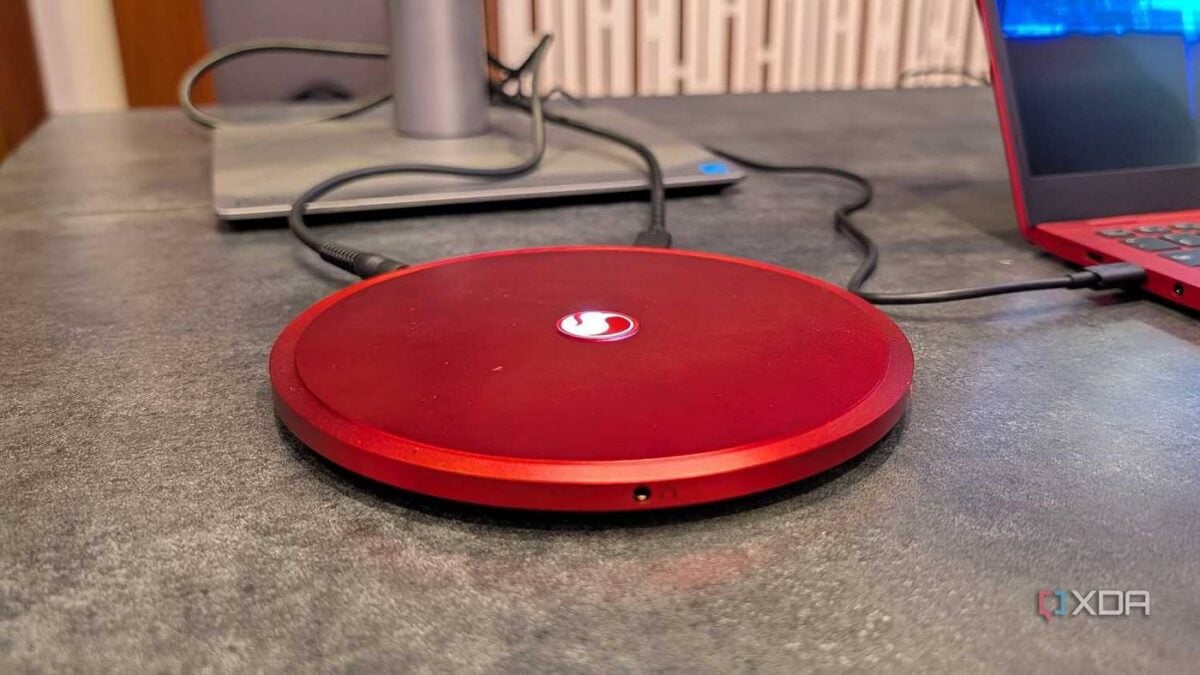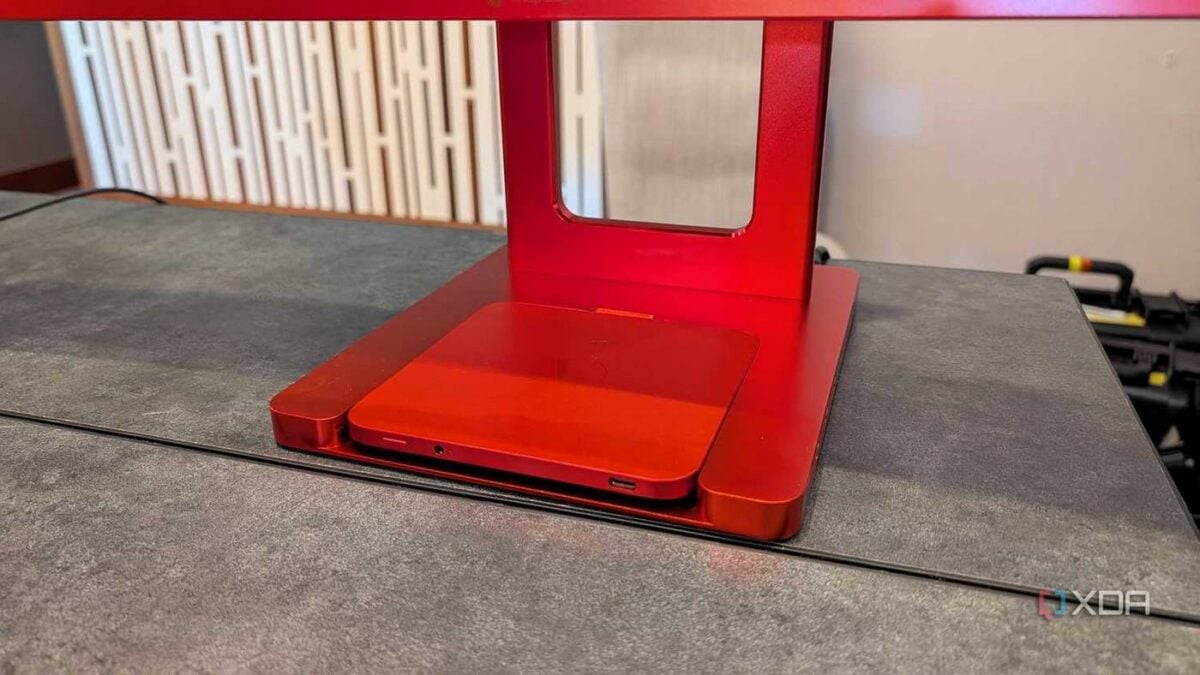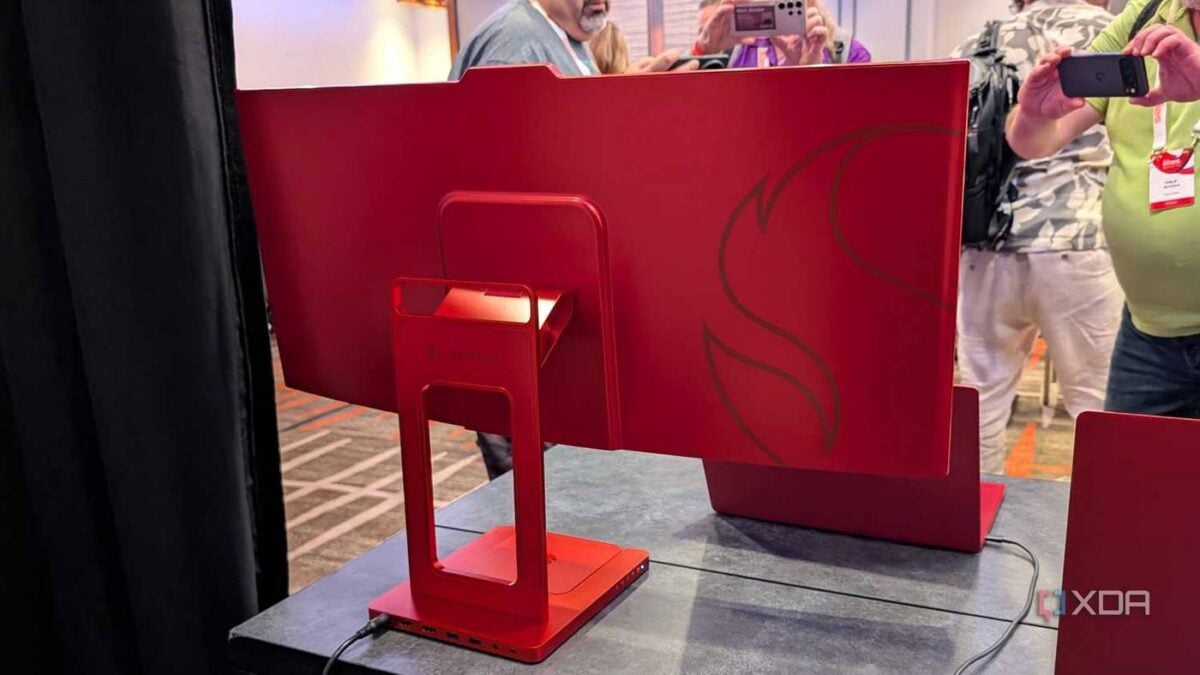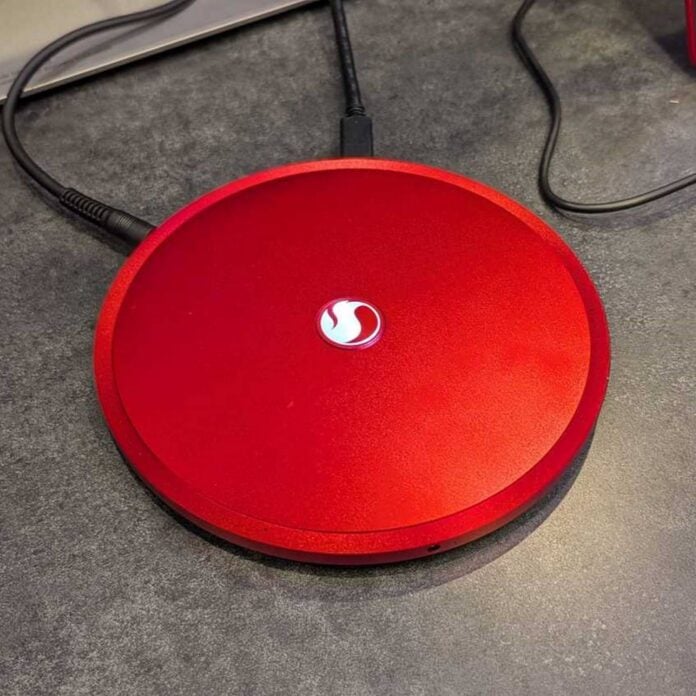Qualcomm has unveiled its latest ARM-based products and innovations during its recent Snapdragon Summit in Hawaii. The company is leveraging lessons learned from its earlier Windows on Arm efforts to deliver a more robust and performant portfolio, covering laptops, tablets, and mini-PCs.
The latter designs are the most eye-catching, offering a super-thin design packed with the latest technologies. Available in two formats, these mini-PCs boast Qualcomm’s upcoming Snapdragon X2 processors, built to counter Apple and Intel in the laptop market by providing high performance and efficiency.
The first prototype design comes in a circular shape, resembling a frisbee or coaster. It is surprisingly thin, considering that underneath its frame rests a complete PC.
Inside, you’d find a Snapdragon X2 Elite Extreme chip, offering 12 Prime ARM cores clocking up to 5.0GHz alongside 6 performance cores at 3.6GHz – for a total of 18. They share 53MB of total cache and come bundled with a 1.85GHz Adreno GPU. Despite its size, this disk-shaped PC seems to have decent I/O, that’s even capable of powering a monitor through its USB Type-C ports.

The second is slightly different, taking a square shape that fits inside a monitor stand, giving users an upgradable all-in-one solution. Again, this system packs a Snapdragon X2 Elite Extreme chip, two Type-C connections, and a 3.5mm audio jack, but this time the monitor can augment all of this with its built-in hub.
Both devices take their power from an external adapter, but it’s unclear if they can be fed through Type-C. Power via USB would be great for this second model, since docking it would be enough to power and control it.

To maintain a slim design, Qualcomm is leveraging Frore Systems’ AirJet technology, a solid-state cooling solution that replaces traditional fans with piezoelectric membranes that push air through tiny vents without any moving parts.
A great solution for compact machines, though with limited cooling potential compared to the good old blowers. That said, partners are free to choose the cooling system they prefer.

Hardware aside, Qualcomm’s collaboration with Microsoft has allowed ARM-based devices to improve over time. From native app ARM support to optimised emulation layers, Snapdragon PCs are better than ever.
Though far from the performance levels of x86 CPUs, ARM chips’ shine when it comes to power efficiency, which is important on mobile devices. If you use your PC mostly for text editing, mailing, or media consumption, these should be great.
The Snapdragon X2 Elite series processors will launch in 2026 alongside new Windows machines. As usual, the price will dictate their success, so hopefully this time Qualcomm won’t price them as high as previous iterations.
Lastly, note that these prototypes are mainly for reference; thus, OEMs may never release a similar product. That would amount to a missed opportunity in my eyes, but here’s hoping someone’s willing to push the boat out.


